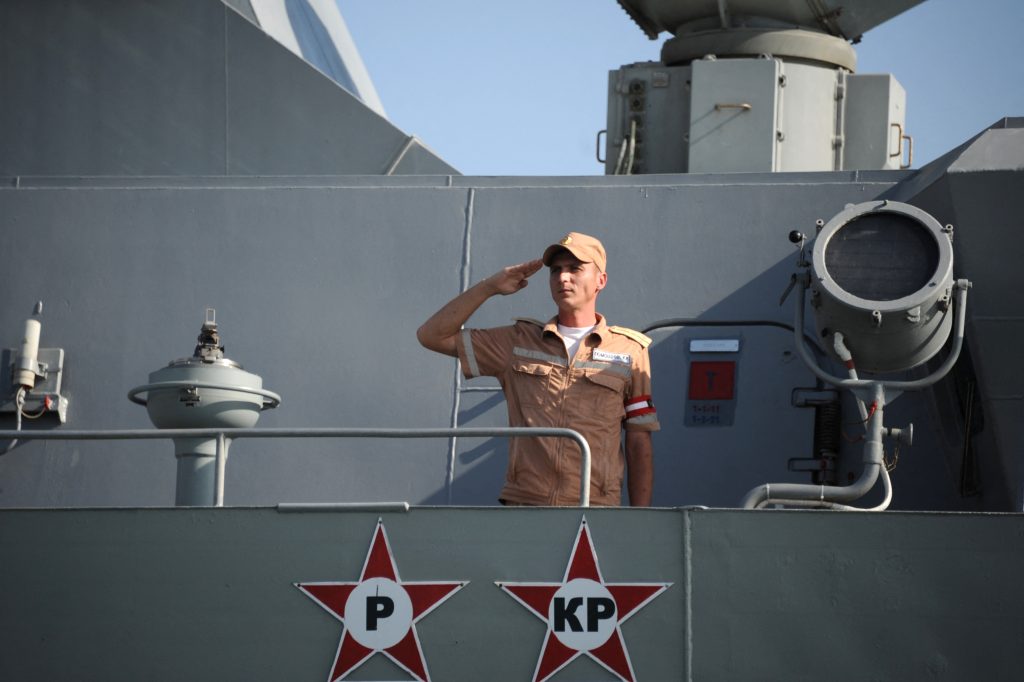The unexpected collapse of the Bashar al-Assad regime in Syria, orchestrated by the Hayat Tahrir al-Sham rebel group, has triggered a significant strategic reassessment for Russia, forcing Moscow to reconsider its naval presence in the Mediterranean. The loss of Assad, a long-standing ally, represents not only a political setback for Vladimir Putin but also jeopardizes Russia’s access to the strategically vital Tartus naval base, a linchpin of its Mediterranean operations for decades. Satellite imagery and open-source intelligence suggest that Russia has begun withdrawing vessels from Tartus, creating uncertainty about the future of its Mediterranean deployment and raising questions about alternative basing options.
The withdrawal from Tartus underscores the vulnerability of Russia’s maritime strategy, especially in light of the ongoing conflict in Ukraine. The closure of the Turkish Straits under the Montreux Convention, preventing Russian warships from transiting between the Black Sea and the Mediterranean, has further constrained Moscow’s naval flexibility. Tartus, as Russia’s sole Mediterranean base, provided crucial access to the region, enabling operations in the Black Sea, Africa, and beyond. The loss of this foothold compels Russia to explore less desirable alternatives, potentially including leveraging existing relationships with Algeria and exploring possibilities in Libya and Tunisia, although these options present their own logistical and political challenges.
The reported withdrawal of vessels like the Admiral Gorshkov and Admiral Grigorovich frigates, the Novorossiysk Kilo-class submarine, and the Vyazma oiler signifies a potential shift in Russia’s Mediterranean posture. While the exact nature of the withdrawal remains unclear – whether a temporary relocation for security or a more permanent evacuation – it undoubtedly weakens Russia’s immediate presence in the region. Analysts suggest that Russia may attempt to reactivate its old Soviet-era network of port access agreements, utilizing facilities in friendly countries like Algeria, and potentially seeking opportunities in more unstable regions like Libya. However, these alternatives lack the comprehensive infrastructure and strategic advantages offered by Tartus.
The uncertainty surrounding Tartus’s future is further complicated by conflicting reports. While Ukrainian intelligence suggests a complete shutdown of the base and a redirection of assets to Baltic ports, other sources remain cautious, suggesting the withdrawal could be a precautionary measure to safeguard vessels. The ultimate fate of the base may hinge on negotiations with the new Syrian authorities, with some opposition figures offering assurances regarding the security of Russian military installations. Meanwhile, Russia is also reportedly making plans to evacuate personnel and equipment from its Khmeimim Air Base in Latakia province, further indicating a potential scaling back of its military presence in Syria.
The potential loss of Tartus represents a significant blow to Russia’s long-term strategic ambitions in the Mediterranean. Moscow had invested considerable resources in modernizing and expanding the base, securing a 49-year lease in 2015 with the intention of establishing a permanent naval presence. This loss, coupled with the repeated Ukrainian strikes against Russia’s Black Sea Fleet, further constrains Russia’s naval power projection capabilities. Forced to relocate its Black Sea Fleet from Sevastopol to Novorossiysk, Russia’s naval assets remain vulnerable to Ukrainian attacks, even further inland.
The combined impact of these events – the loss of Tartus, the vulnerability of the Black Sea Fleet, and the closure of the Turkish Straits – significantly weakens Russia’s naval posture, placing Turkey in a strategically advantageous position. The diminished Russian presence in the Black Sea and the Mediterranean shifts the regional balance of power, creating a vacuum that Turkey, a NATO member, is well-positioned to fill. This evolving geopolitical landscape presents both challenges and opportunities for the region, with the future of Russian naval operations in the Mediterranean hanging in the balance. The ultimate outcome will depend on negotiations with the new Syrian authorities, Russia’s ability to secure alternative basing arrangements, and the ongoing dynamics of the conflict in Ukraine.










